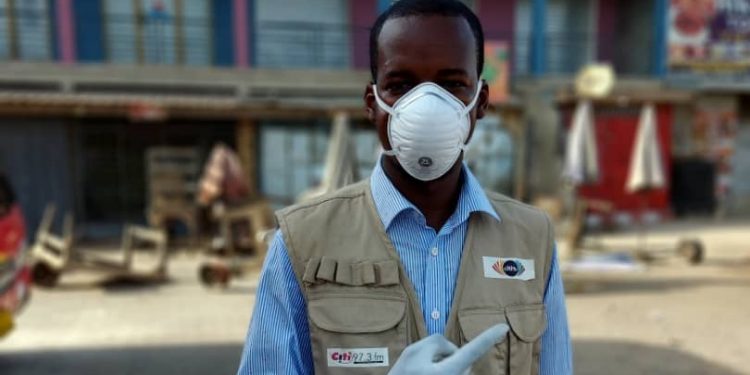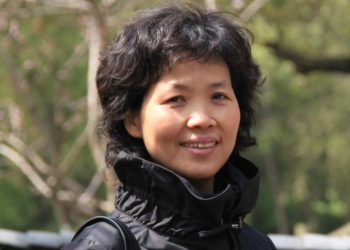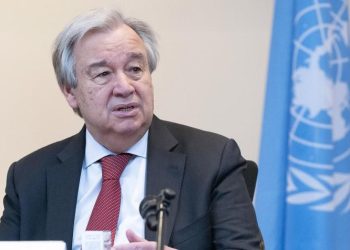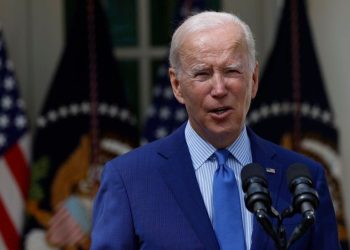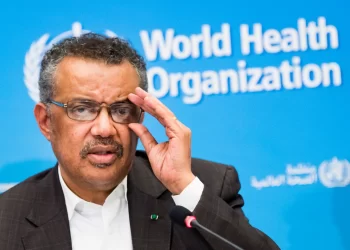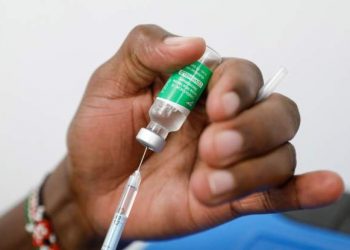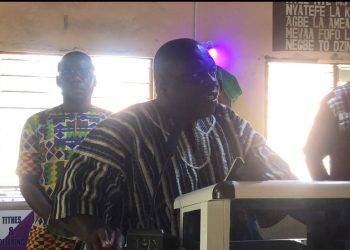It’s exactly a year since Ghana experienced its first-ever covid-19-induced lockdown. The lockdown which took effect from March 30, lasted for three weeks. Though it was not a nation-wide lockdown, it came at a time of great uncertainty. There was so much apprehension as the country traversed a virgin path. The pictures from Europe and the Americas were not good. Thousands of people were dying daily, even in countries with the most sophisticated medical expertise. There were reports from some quarters painting an ominous picture of Africa and wondered how the continent’s response to the pandemic would be. Some said for Africa, dead bodies may be found on streets and it was just a matter of time if no swift action was taken.
I read reports about the new virus in China in December 2019 and it sounded so remote, I didn’t even bother to know which town it was recorded in. When it moved to Europe and was killing people, I sympathized with them and just moved about unconcerned. I remember anchoring news bulletins in which I had to interview Ghanaian students trapped in Wuhan, China and moderated debates between the government and opposition over whether to repatriate the students or not. I was still reporting on the virus as though it was an alien that could only be heard of but not seen.
As a newsman, I was generally excited, not happy, that the first case was recorded in Africa’s Egypt and when the virus formed a ring around Ghana – having been recorded in all our neighbouring countries, I panicked slightly.
I was silently pleased with the earlier conspiracy theory that said the African sun was too hot for the virus to thrive and the other one that said the African gene was not welcoming of the virus. But when it entered Burkina Faso, a country whose temperature is way higher than Ghana’s, I started feeling funny. But on the night I sat in my room and watched the Minister of Health announce on national television that the inevitable had happened, I got angry with the government. “How dare you keep our borders ajar till two people brought in this dreaded virus?” I muttered. For me, we should have locked out everyone and lived ever happily after. But that will be overly simplistic!
Immediately after watching the announcement, I told my wife not to allow our children go to school the following morning. I feared the confirmation in Ghana could cause panic and agitation in town. That night, I could not sleep. So many ideas were running through my mind. I had heard that children were immune. I kept wondering. Was God finally coming to wipe the world of sinning adults and leave behind only clean children to start a new generation? So my two girls were not going to grow in my presence? That must not happen. There must be a way out, I thought.
I thought of loading my car booth with food and carrying my nuclear family to my parents’ place in the village where we would prevent anyone from coming close. The movies about plagues that wiped entire populations except inhabitants of some distant city or navy ship was playing through my mind. Should I rent a boat and carry my family on the sea till everything was over? How many of my family members could even fit into that boat? My father’s grandchildren of nearly 50 may need a whole Titanic, I thought. What if criminals start looting and robbing survivors of the pandemic? I was scared.
Indeed, the following morning, the newsroom received a Whatsapp message purportedly put on a WhatsApp platform of Lincoln International School. The message was directed at parents of students of a particular class that one of the first 2 confirmed cases had had contact with a parent of one of the children in the school. I forwarded it to my wife and said, this could have been the school our children attend.
As journalists, we swung into action. After all, we are frontline professionals. We had to dig into the new virus and report to the population. There was a loud call for details of the first two cases to be published to enable easy contact tracing. The government rejected it. Speculations were rife about who the two persons were. There were rumors they had thrown a party recently and many affluent people had gone to that party. One afternoon during our post news meeting, a colleague announced to the newsroom that if the said party was really a spreader, then there may be a possibility she got it because she had gone to that event to cover it for news. A colleague who was standing by literally flew from that side of the newsroom to safety. Soon, the stigma started. People were suspicious of each other. I have had a cough that predated COVID-19 but now, I found myself swallowing my own cough. That was hell.
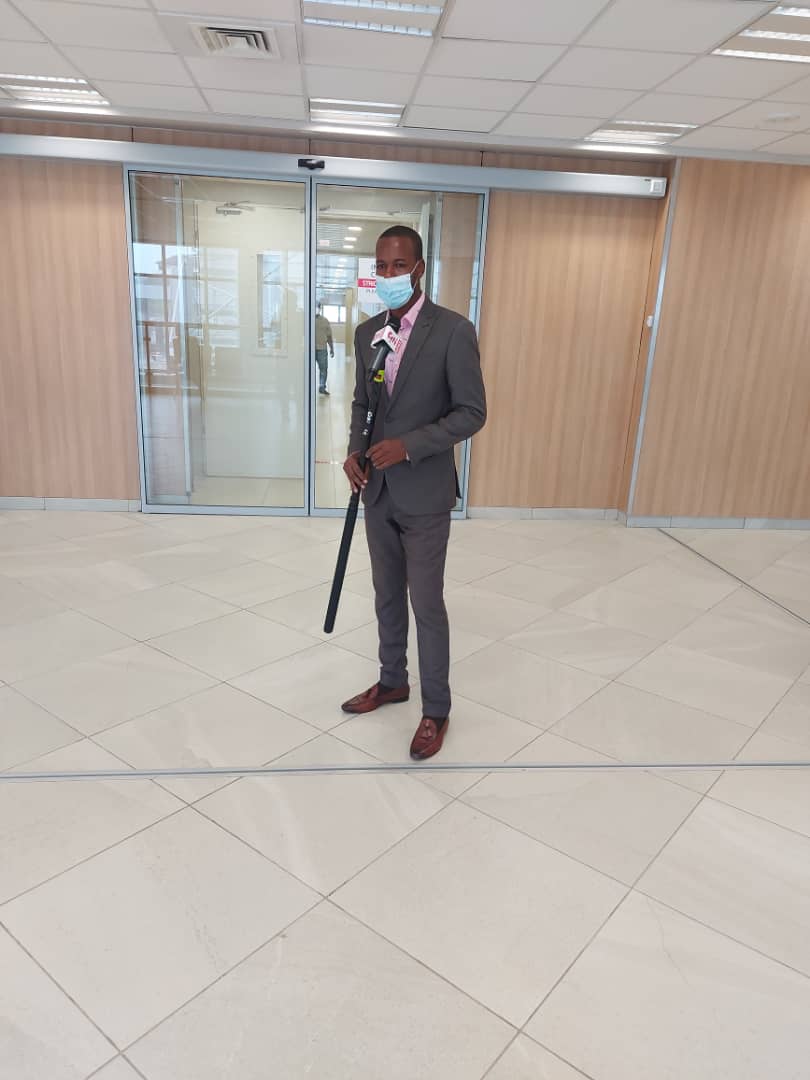
There was a day I went to the University of Ghana Hospital to follow up on a report we had that one student had tested positive for the virus. At the entrance to the hospital, there were temperature guns and hand sanitizers. Among the questions they asked at the gate was whether anyone among the people coming in was coughing. I was with my Producer, Cameraman and Driver. By this time, I was still having my dry cough which I have had for some weeks prior. My team was already suspicious of me. And now, was the time of reckoning. “Is anyone experiencing a headache or coughing?” the lady asked. Silence! The cameraman turned around and looked at me in the manner students did when they want to snitch on noisemakers in class. I panicked. But he didn’t report me.
We were ushered into the Administrator’s office where we were to have the interview. At the reception we were made to wait, it was very difficult to suppress the volcanic cough that was threatening to erupt from my lungs. After 5 minutes, the crew decided it was wise for us to leave. They could not afford to have me detained over suspicions that I had COVID when we all knew my cough predated the virus. My boss always made it a point to remind my colleagues that I had an old cough which I had been treating long before COVID and advised against stigmatizing me.
I bought some masks and made a quick dash for the village where I handed them over to my parents and taught them how to wear them. I left an instruction that under no circumstance should they go out of the house for anything. They should just call. I worried I would lose my parents soon, then I would die too, and my children would grow up with other children of the world and they would start their own civilization. Those days were indeed heady.
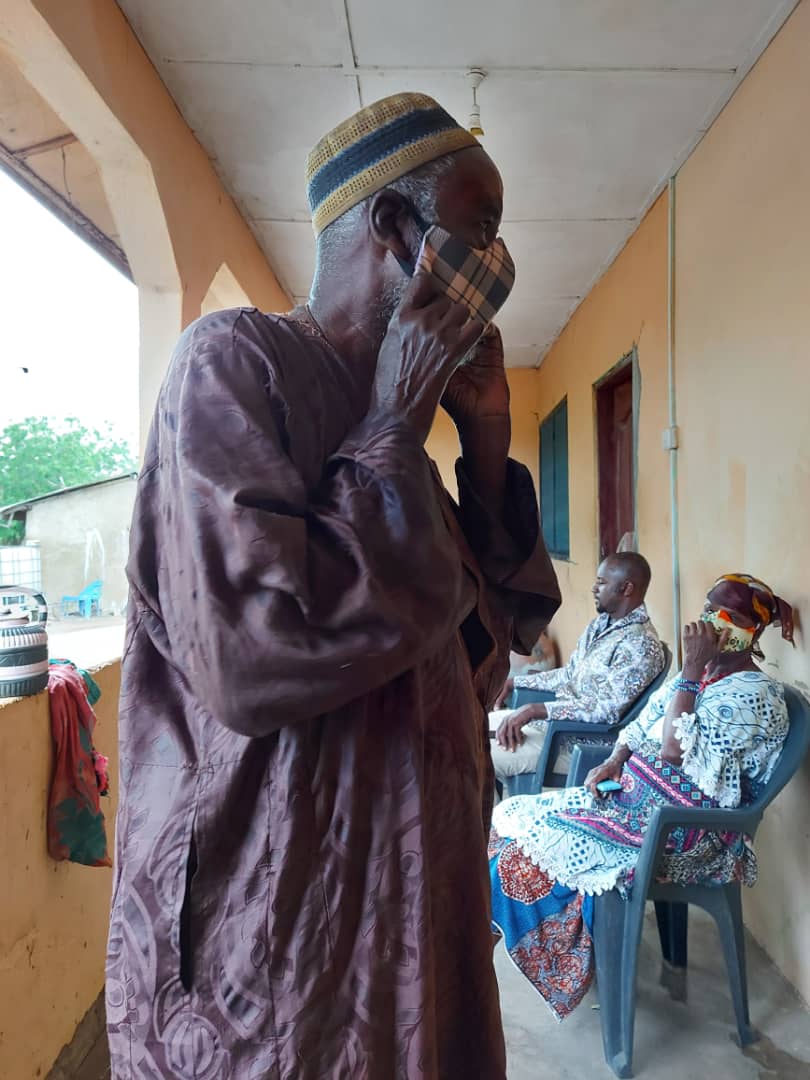
Even though I had my own fears and was anxious about the new virus in town, I knew it was my obligation to get into the thick of things and report on the virus because news was a competitive business. I therefore did not hesitate even for a second when Dr. Ali Samba, head of the COVID-19 Management Team in Ghana contacted me and asked if I could visit the National Coronavirus Treatment Center and help change the narrative on the stigma that was now associated with even persons who may have spoken on the phone with a positive person.
I was home when the call came. I immediately phoned my boss to discuss the issue before hopping into the car to the Ga East Municipal Hospital. I was met by my camera man who had brought with him two of the few consignments of nose masks available in the office. During this time, personal protective equipment (PPE) was only an emerging trend. It was not something a journalist would typically have in his package of work tools. Without much of a thought, my cameraman and I wore our masks and walked gallantly through the front doors of the Ga East Municipal Hospital which for many would qualify at the time as the “death zone” of Coronavirus.
Prior to coming here, I had imagined people lying on stretchers and coughing their lives away. I worried that I would see people so sick and begging me for water in their croaky voices. I knew, that it was only God who would bring me out of this place as a whole human. I was scared, but this would not be the first time that the animal in me called journalism was pushing me to the world’s end. With the microphone and camera alive, Kamaru and I started work excitedly, knowing that a thousand other journalists would die for this rare opportunity. My expectations, though, were shattered.
I interviewed Fred Drah in the hospital. He was the first community case recorded from Tema. He sounded more energetic than me. He was strong looking and had a voice so authoritative, I thought the hospital was mistaken by calling him a COVID-19 patient. His interview was the first ever by anyone in Ghana who tested positive for the virus and my entry into the hospital was the first time Ghanaians were getting a chance to see what the patients looked like. Of course, not all the patients were as fit as Drah. There were four people in the Intensive Care Unit of the hospital and the country had recorded eight deaths by that time.
This interview would later help erase the stigma many had about the virus. But for me as a person, it heightened the stigma against me. I received calls with many of them concerned and scared. People told me to self-isolate and make sure I didn’t go home to my family that evening. There were colleagues in the office who were confident, my cameraman and I had contracted the virus and made it a point to avoid us to the best of their abilities. In the house, my wife had put a bottle of sanitizer at the entrance and insisted I didn’t hug my daughters but make a beeline for the washroom anytime I came home.
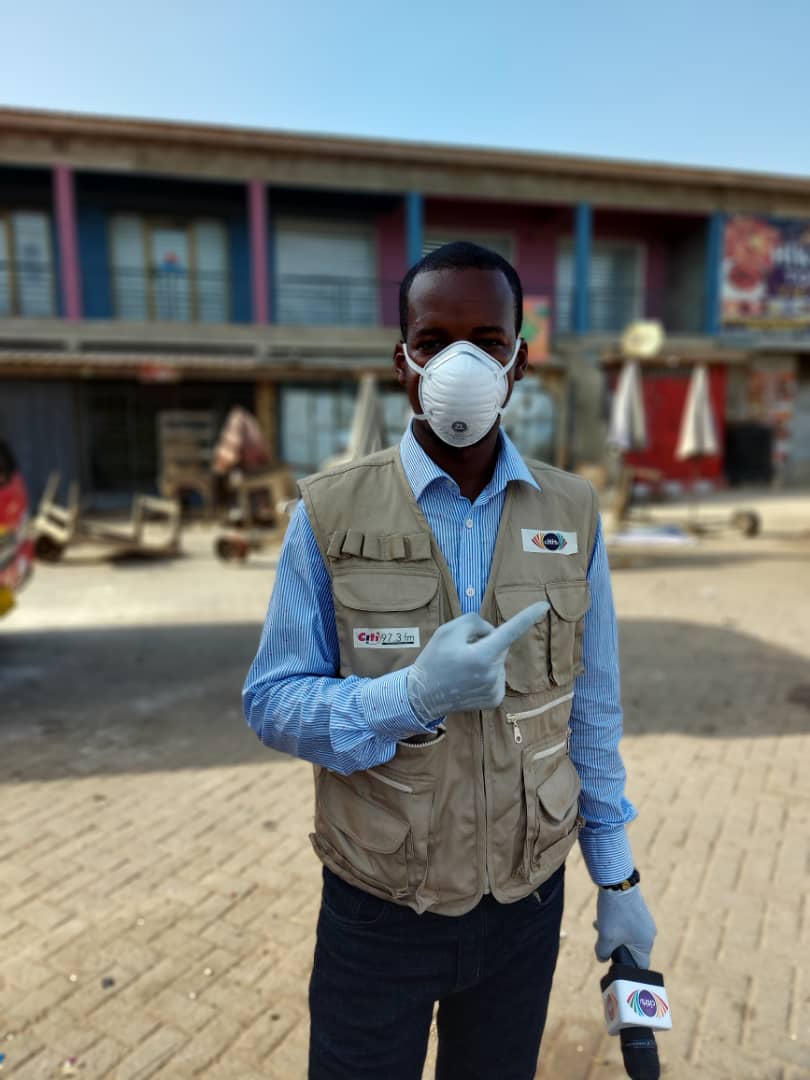
What many of my colleagues did not know, was that when I went to the hospital that day, I was met with the biggest shock of my life which brought the coronavirus closer to all of us than they imagined. There in one of the wards in the belly of the Ga East Municipal Hospital laid one of my male colleagues from the newsroom. He had been there for two days before my visit and he was being treated for COVID-19.
My organization undertook contact tracing, got the whole office tested for the virus and disinfected the various offices. Even stricter protocols were implemented for the skeletal staff that came to work. Though we were confident of the measures, it was natural that we would be apprehensive. As a policy, there were periodic tests to ensure the safety of the people and workspace.
The lockdown period that started from March 30, 2020, was sobering. I watched as most parts of the country’s two economically active regions, Greater Accra and Ashanti, went into lockdown. I kept reading the updates as the figures moved from single to quadruple digits with the attendant death toll. Big names were dying. When Presidents and Prime Ministers contracted the virus, I knew the end time was nigh! I remember how Accra with all its gridlock suddenly became as quiet as a graveyard. It was nice to drive around without traffic as one of the few privileged ones allowed to do so under lockdown but it brought out the bigger fear of how slum dwellers and head potters were bound to die if the lockdown persisted.
I vowed not to drive through the Kwame Nkrumah Circle because one night, I got accosted by a violent team of young men who demanded I gave them food or money. They looked visibly hungry and agitated. I was scared about what would happen if the restrictions were not lifted soon enough.
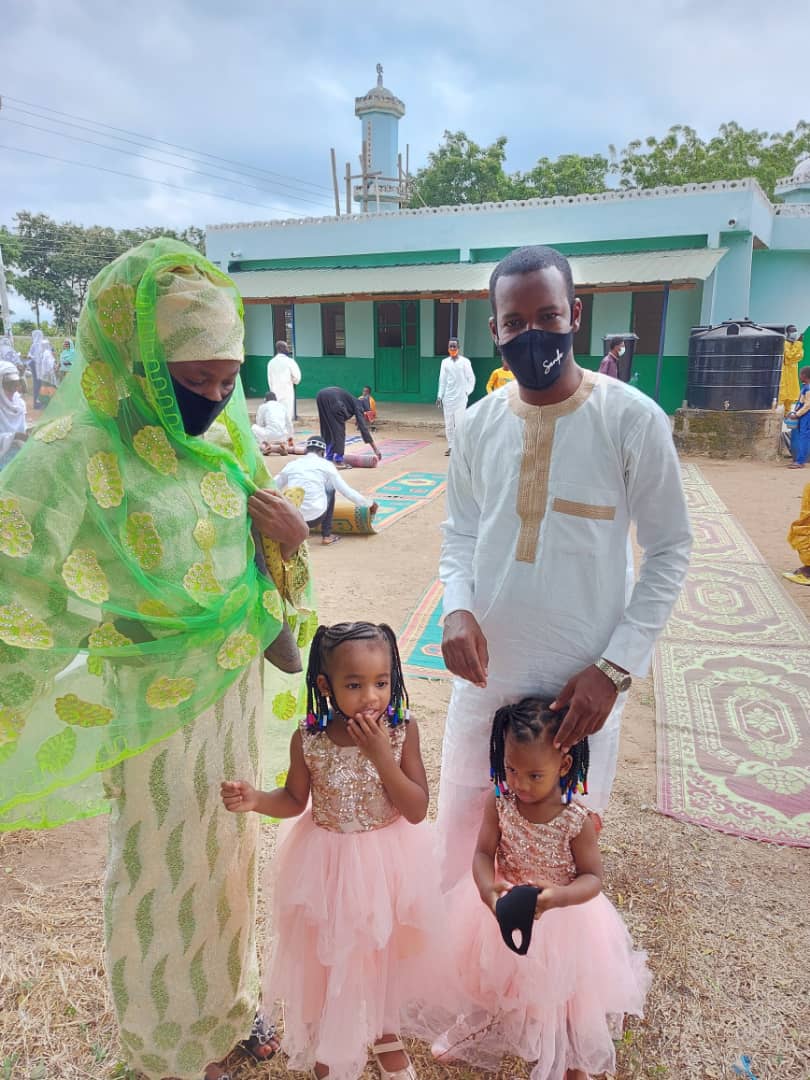
Over the past year, I have lived in fear and anxiety. I have worried that important occasions like Eid and Christmas, as well as the Jumah and Sunday church service, were cancelled making me observe the annual festival for the first time in the house instead of the big school park in my village. I worried about the decision to have the masses show up for the Ghana card registration and the voter ID card in the midst of the pandemic.
It has been a year since the coronavirus lockdown took effect following the virus’ foray into our country. The virus has since affected hundreds of families and caused grief among many. Although my work has taken me so close to persons with the virus so many times, all tests I ran have returned negative results for which I’m grateful to God. After taking the vaccine, I feel more encouraged now, knowing that scientists of the world are breaking their backs to make sure we soon throw away those nose masks and start talking of the pandemic in past tenses. To borrow the words of my fellow Ghanaian, and President, Akufo-Addo, “This too shall pass!”
—-
The writer, Umaru Sanda Amadu is an award-winning broadcast journalist. He hosts the flagship Eyewitness News on Citi FM and co-presents Citi TV’s major news bulletin, CitiNewsroom.

